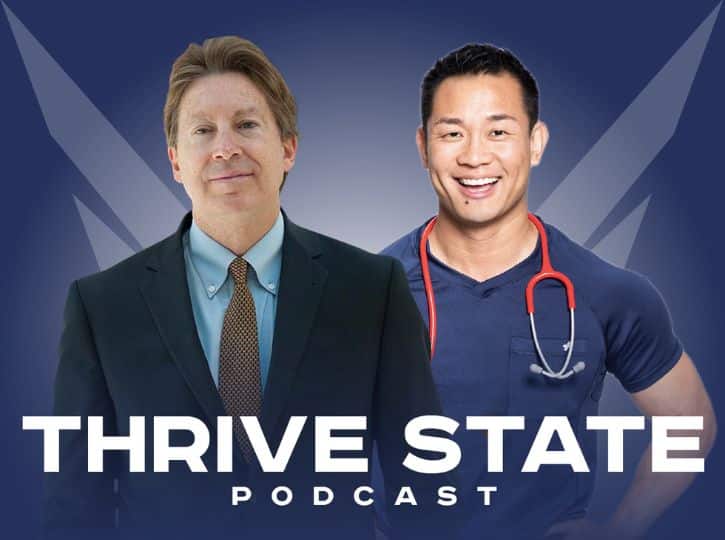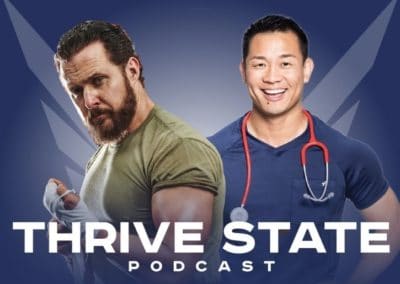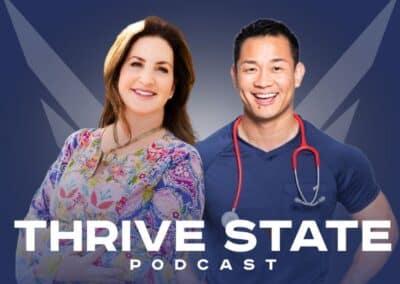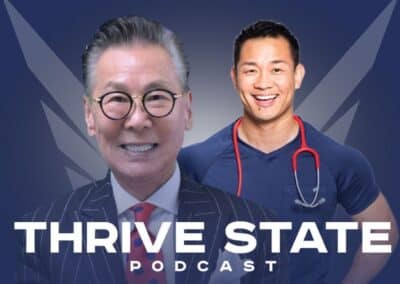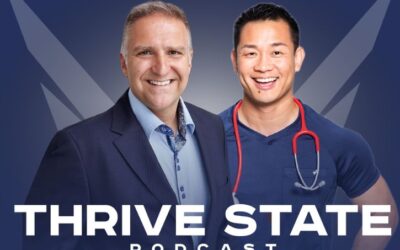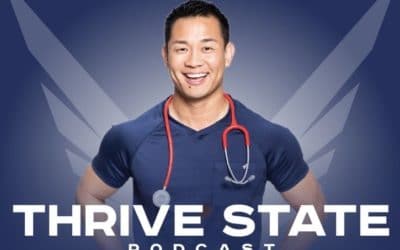Episode 82: Dr. Dale Bredesen
But what does that really mean in terms of its health?
What does it mean to address cognitive decline?
One of the most puzzling brain conditions of our time is Alzheimer’s–the medical community has gone through countless research and run numerous theories to solve it. Our common notion includes that it’s genetic, irreversible, and SCARY.
But approaching it from the functional medicine point of view makes the most sense. And gives people hope.
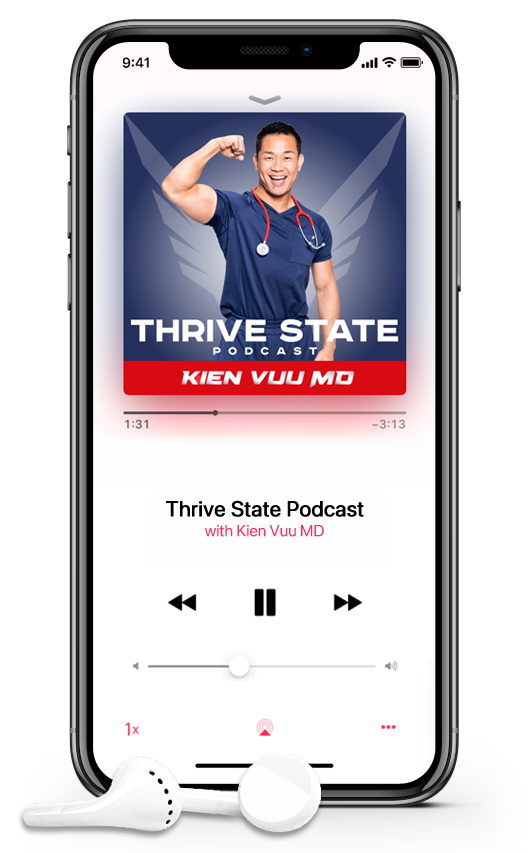
Alzheimer’s is not set in stone. When there’s network insufficiency, your brain’s master switch moves to a protective, downsizing mode. This mechanism makes Alzheimer’s fundamentally a network insufficiency.
On this premise, latest research says that Alzheimer’s is not just preventable but also reversible. And it is never too early to start optimizing all functions.
So how?
This theory was initiated and explored by Dr. Dale Bredesen. His success made him an internationally recognized expert in the mechanisms of neurodegenerative diseases, vanguard of neurological research, innovator and the brain behind the ReCODE Protocol. He is also the brilliant author of the 2017 New York Times‘ Best-Seller, The End of Alzheimer’s.
Dr. Bredesen’s work explores previously uncharted territory in explaining the physical mechanism behind the erosion of memory seen in Alzheimer’s disease, and has opened the door to new approaches to treatment which makes it not just preventable, but reversible.
Catch Dr. Dale Bredesen at the Thrive State Podcast!
Show notes
6:46
Alzheimer’s is fundamentally a network insufficiency.
Your brain’s master switch moves to a protective, downsizing mode when there’s network insufficiency.
9:15
Alzheimer’s through the lens of functional medicine (root-cause medicine)
We have to quit thinking of people as prescription pads. We have to think about people as complex systems and look at how these things all work together.
Functional medicine deciphers the little insults you do to your body which makes it respond in a certain way.
13:51
Types of Alzheimer’s
Typically, people would have multiple contributors but they would have one or two dominant ones.
Type 1: Inflammatory Alzheimer’s – mainly caused by inflammation
Type 2: Atrophic Alzheimer’s – low energy, hormones, nutrients and growth factors; typically older, more often female
Type 1.5: halfway between 1 & 2 due to glucotoxicity
Type 3: Toxic – brought by toxin
Type 4: Vascular
Type 5: Traumatic – endure frequent injuries
EMT is the cell’s response to insults which leads to fibrosis.
Giving steroids is just pushing off the response.
19:20
Genetics and Alzheimer’s
Genetics will increase your risk but not the determinant. People with APOE-e4 gene copies have a higher risk for Alzheimer’s (the most common genetic risk factor). If people know about it, we can do active prevention or reversals.
23:02
Cognoscopy
A non-invasive series of tests composed of blood tests to check your inflammation and methylation status, a simple online cognitive assessment (CQtest is free) to help you assess what intervention you need, and an MRI to check if you’re having areas of atrophy.
25:55
Cognitive Health and Nutrition
The signature of Alzheimer’s is reduced glucose utilization in the temporal and parietal lobes.
Critical for optimal brain function: Insulin sensitivity and keto adaptivity
As you age, your memory and cognition can be further affected by the way your body uses glucose. When you’re metabolically flexible, you are able to use glucose and ketones and go back and forth for optimal brain function.
Keto12/3 = 12 hours of fasting between meals and 3 hrs between your last meal and before going to bed; plant-rich and mildly ketogenic diet = to get metabolic flexibility.
30:55
Measures and Checking Ketone Levels
People who are doing best in their cognitive improvements typically score between 1.0 and 4.0 m/m hydroxybutyrate or between 10 and 40 acetone level.
32:27
Other Root Causes
Dementogens are actually everywhere, and you should know if you’re exposed to these in three groups: inorganic toxins (air pollution, mercury, etc), organic toxins (benzene, glyphosate, etc), and biotoxins (various molds species).
Detox and spend more time outdoors. We, human beings, are not evolutionarily designed inside mold food and yet that’s what our homes are typically made from.
36:40
The Microbiome and Cognitive Decline
Oral and nasal microbiome are very important in cognitive health. The same microbiome alterations (P-gingivalis) that gives you periodontitis can give you brain disease—critical in cognitive health.
You can get an oral DNA test from myperiopath to check your oral microbiome.
39:23
The End of Alzheimer’s and RECODE Program
Alzheimer’s is not set in stone. It’s never too early to start optimizing brain functions.
Reversal of Cognitive Decline – an algorithm used to see the subtype and identify what the person needs.
43:28
Relevant Links:
- How to Keep Your Head On Straight in 2021
- Talking Sh*T !!! How Your Gut Affects Your Health and Performance
- Listening to Your Inner Truth
- Ultimate Performance Tools of the Titans
- Hacking Your Movement and Breath for Peak Performance
- Making of a SuperHero body with Celebrity Nutrition Expert with Rehan Jalali
- World Building
- The Healing Power of Decision
- Courageous Love - Overcoming Assault, Addiction, and Divorce
- The Easy Way or The Heart Way - Master Your Cardiovascular Health
- The Medicine of Authenticity and Intuition
- The Healing Power of Being in the NOW
- Living with No Regrets After "She Bangs"
- Say Yes to NO - Nitric Oxide as the magic molecule to Erections and Vascular Health
- Former Miss California Reveals Health Insights from the World of Pageants
- Finding Your Community Through Purpose
- The Synergistic Healing Energies of Culinary Alchemy
- Leading Yourself to Success While Having Fun
- Love is the Strongest Medicine
- Get Healthy AF with a Habits-Based Approach
- Light Em Up - The Performance Benefits of Red Light Therapy
- A Game Changing Approach to Peak Performance
- Transform Yourself and Your Love Life with Integrity Dating
- What the F*&$ is Performance Medicine???
- How to BioHack and Manifest Your Best Life
- Epigenetics - How to Control Your Genetic Destiny
- Mindset and Moonshots
- Sexual Biohacking: Secrets Revealed to Getting Turned On
- Sugarproof: How to Protect You and Your Children against Disease
- Healing DIS-ease with Qigong
- Live to 200: The Science and Technology of Growing Young
- Powerful Mental and Emotional Hacks to Health and Success
- Stop Emotional Eating NOW - Secrets to Never Having to Diet Again
- How to Activate Your Thrive State
- Overcoming Dyslexia and Turning Ferrari Clients into F1 High Performers
- The Vision and Mindset of Achieving Anything You Want
Other YouTube videos to enjoy:
- How to Cook Rice | White Rice vs. Brown Rice | Is Rice Healthy? | Red Rice, Black Rice, Purple Rice
- Sugar is more addictive than Cocaine!? | Why sugar is bad for you | How to quit sugar
- How Stress Affects Your Mind and Body | Chronic Disease | Stress Relief | Doses of Fun
- Morning Routines | Successful morning habits | My Best Healthy Morning Routine
- Are You Really Happy? How to be happier? | The secret to Happiness
- Men Lifestyle & Health Tips | 11 Ways to Stay Sexy | Kevin Kreider | KienVuuMD
- FINDING YOUR PURPOSE | Motivational Video | Daily #motivation #Inspirations #Passion
- MOTIVATIONAL | INSPIRATIONAL VIDEO | Health is a CHOICE | The POWER of CHOICE
- Viome - Naveen Jain | How poop can affect your health!
- Philly Cheese Steak! Why it should be a Recreational Indulgence | Diet Choices

